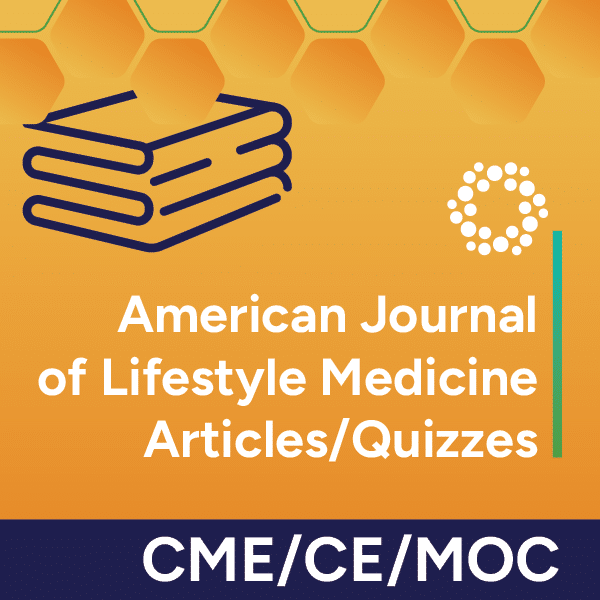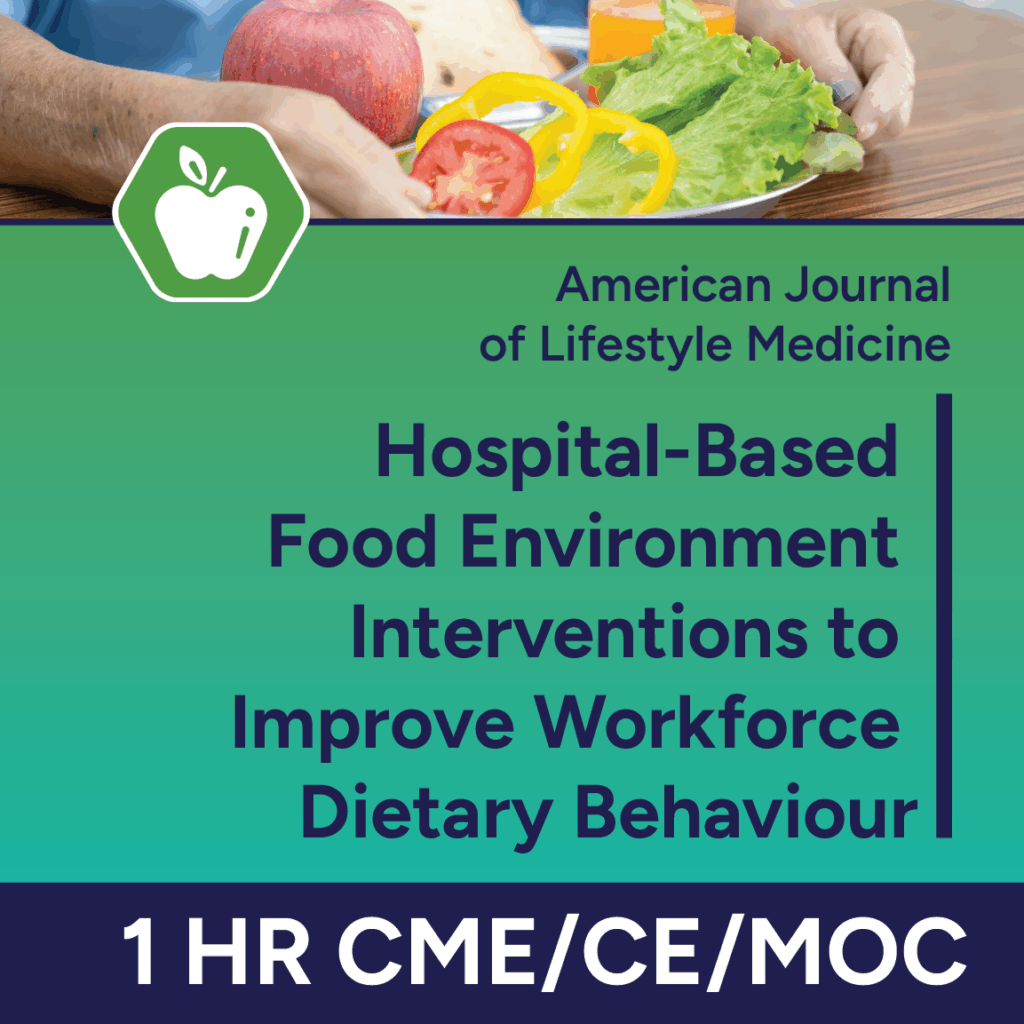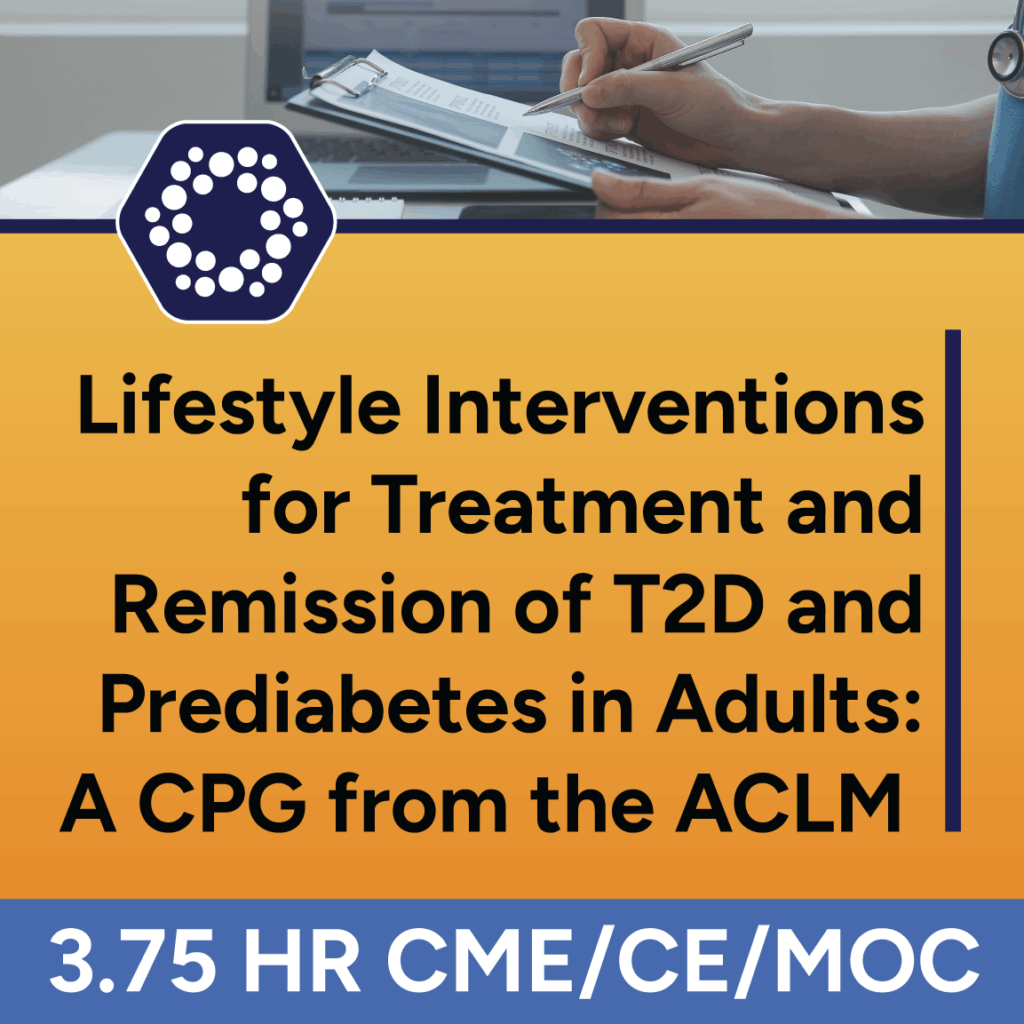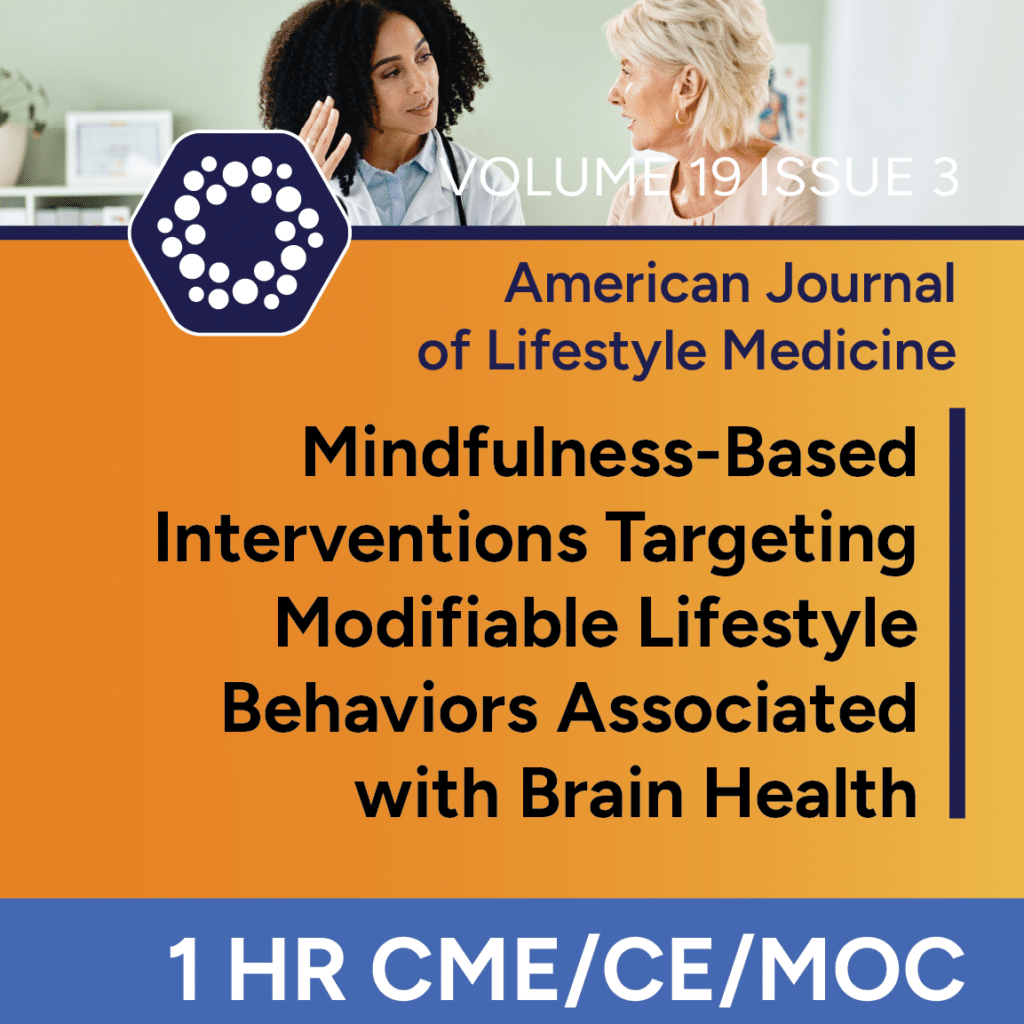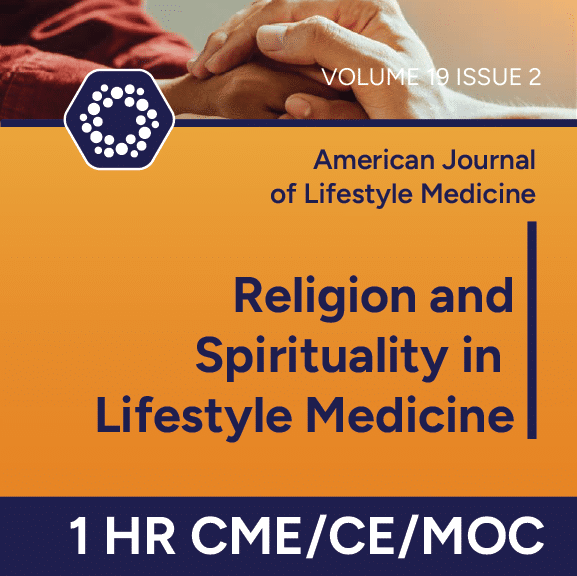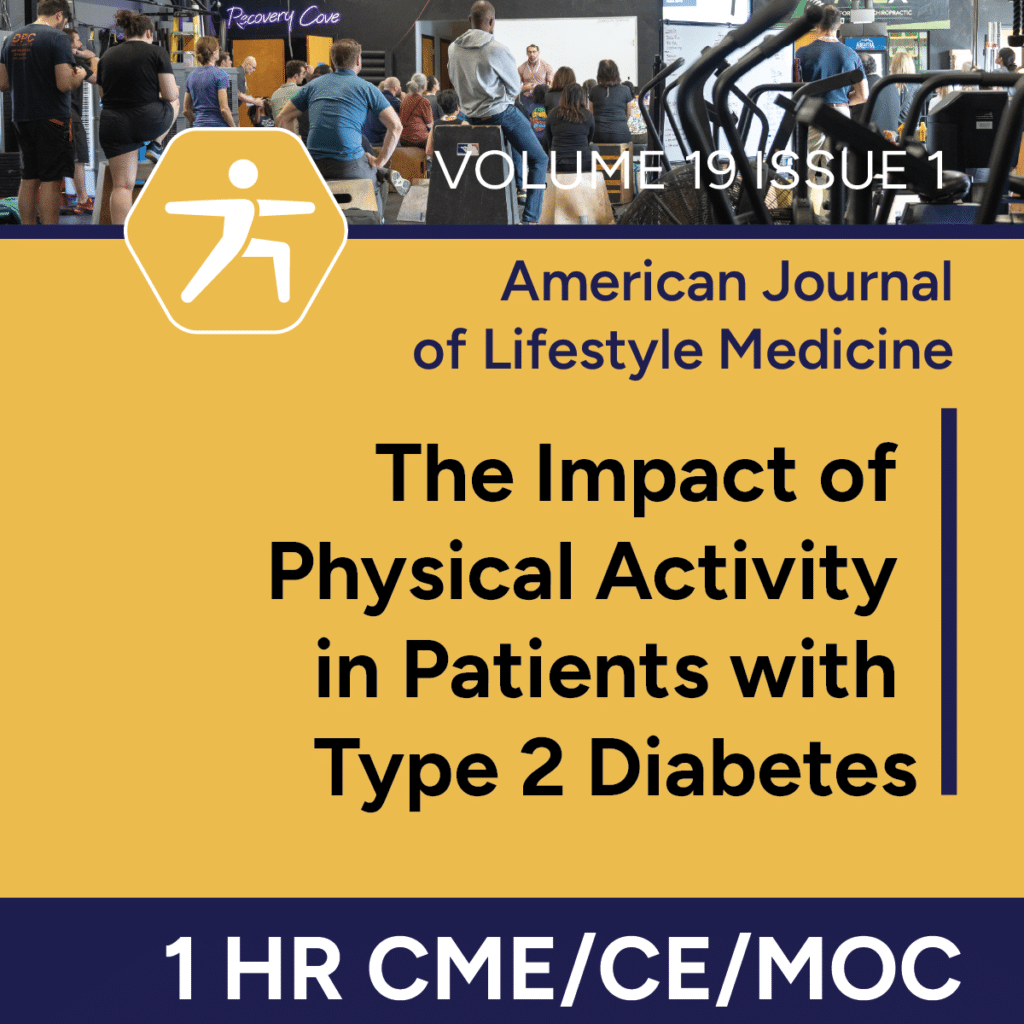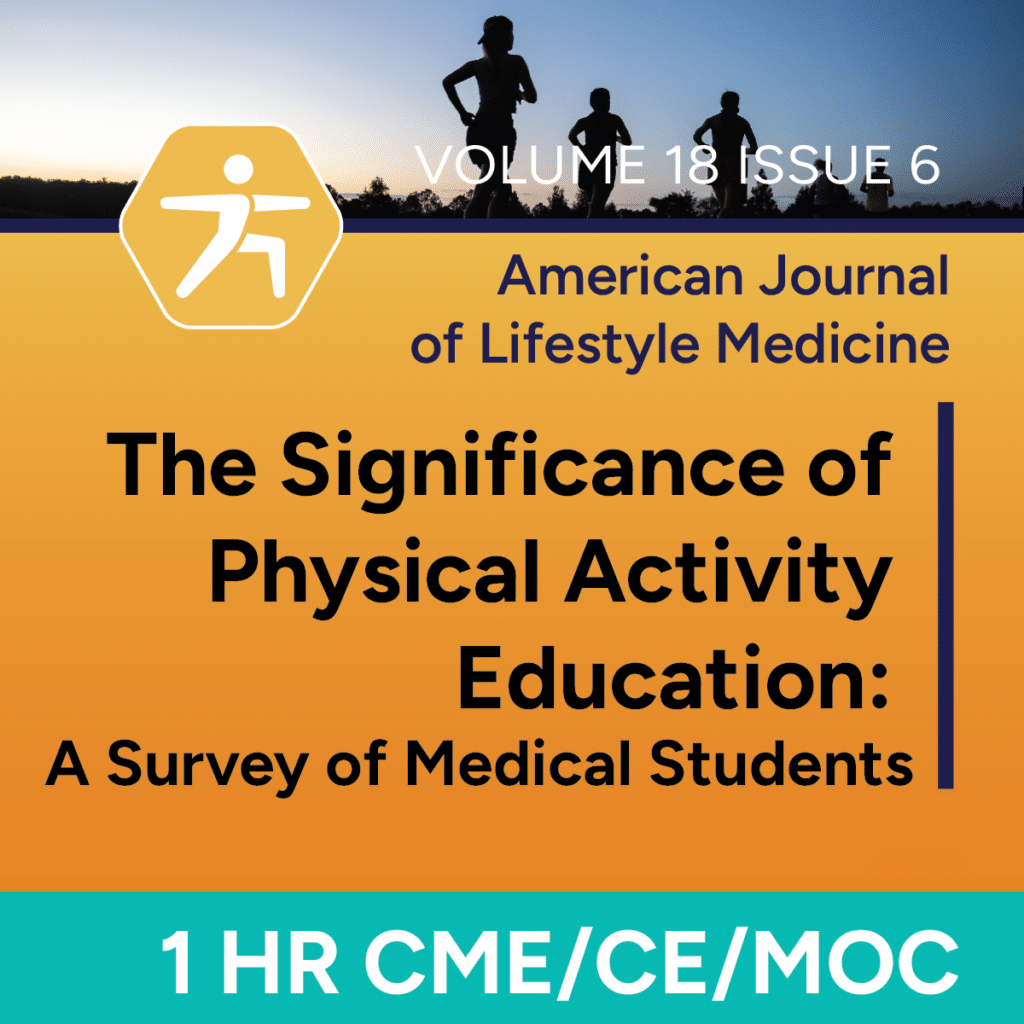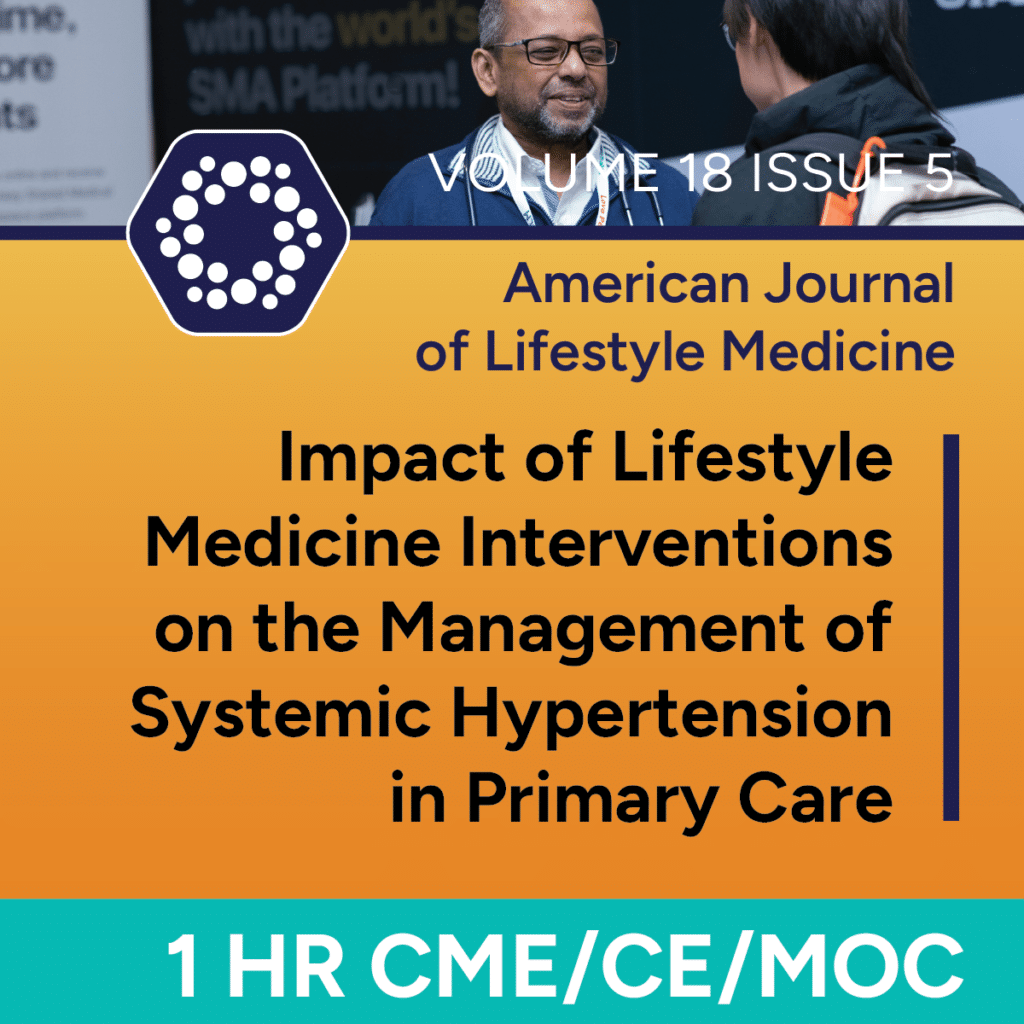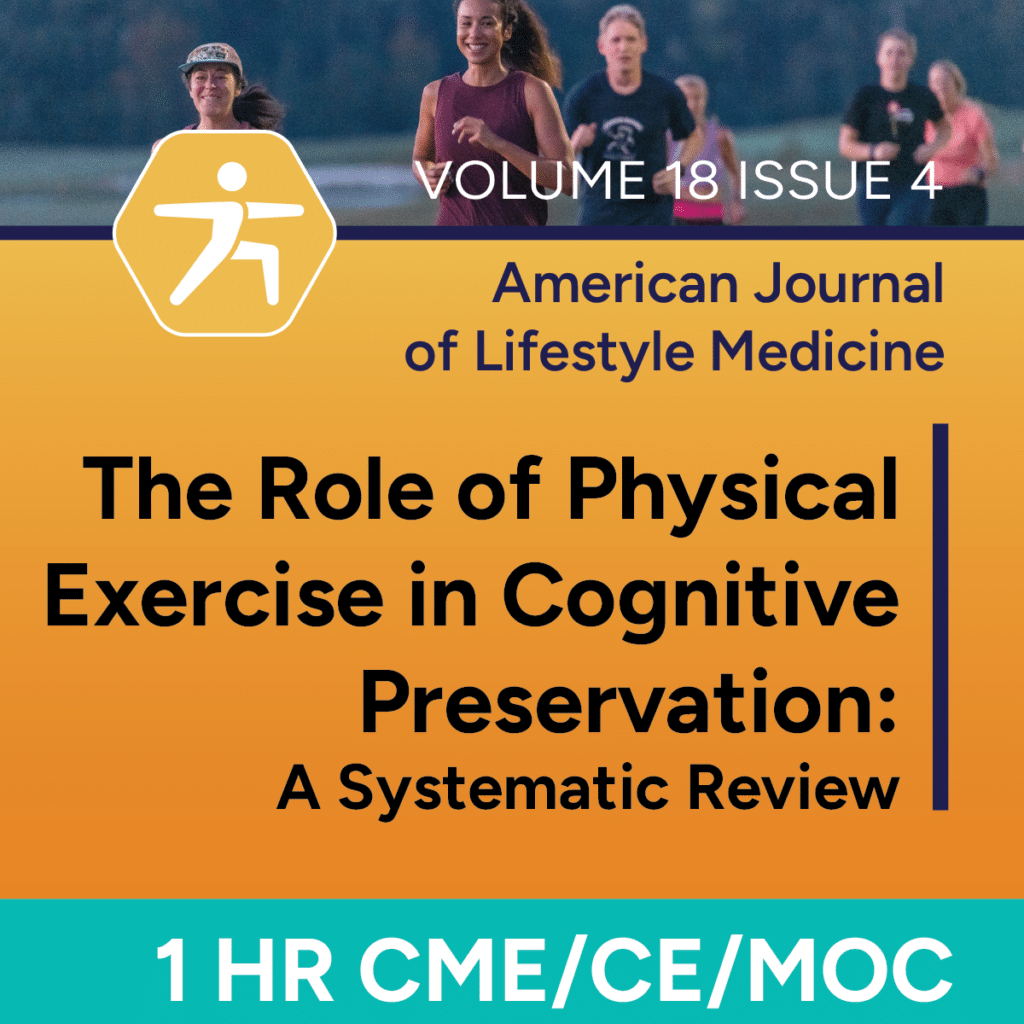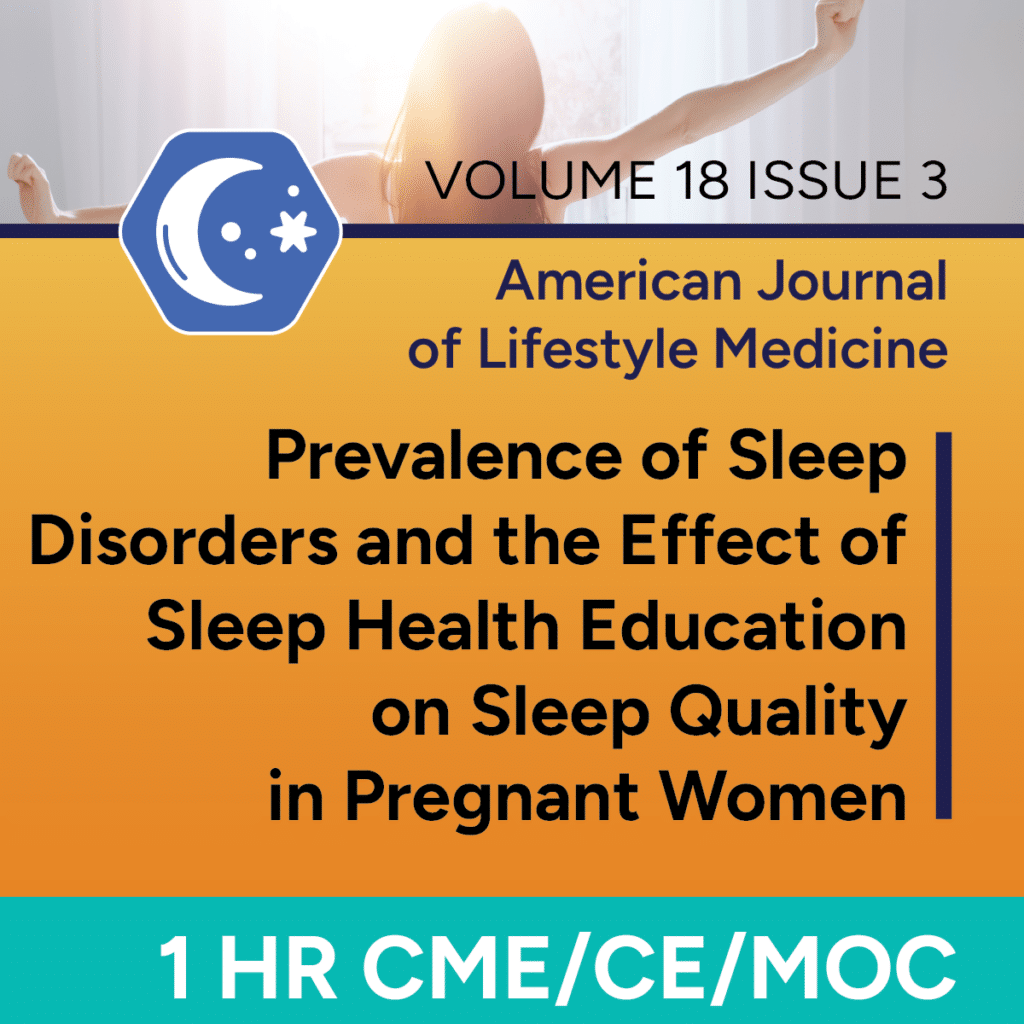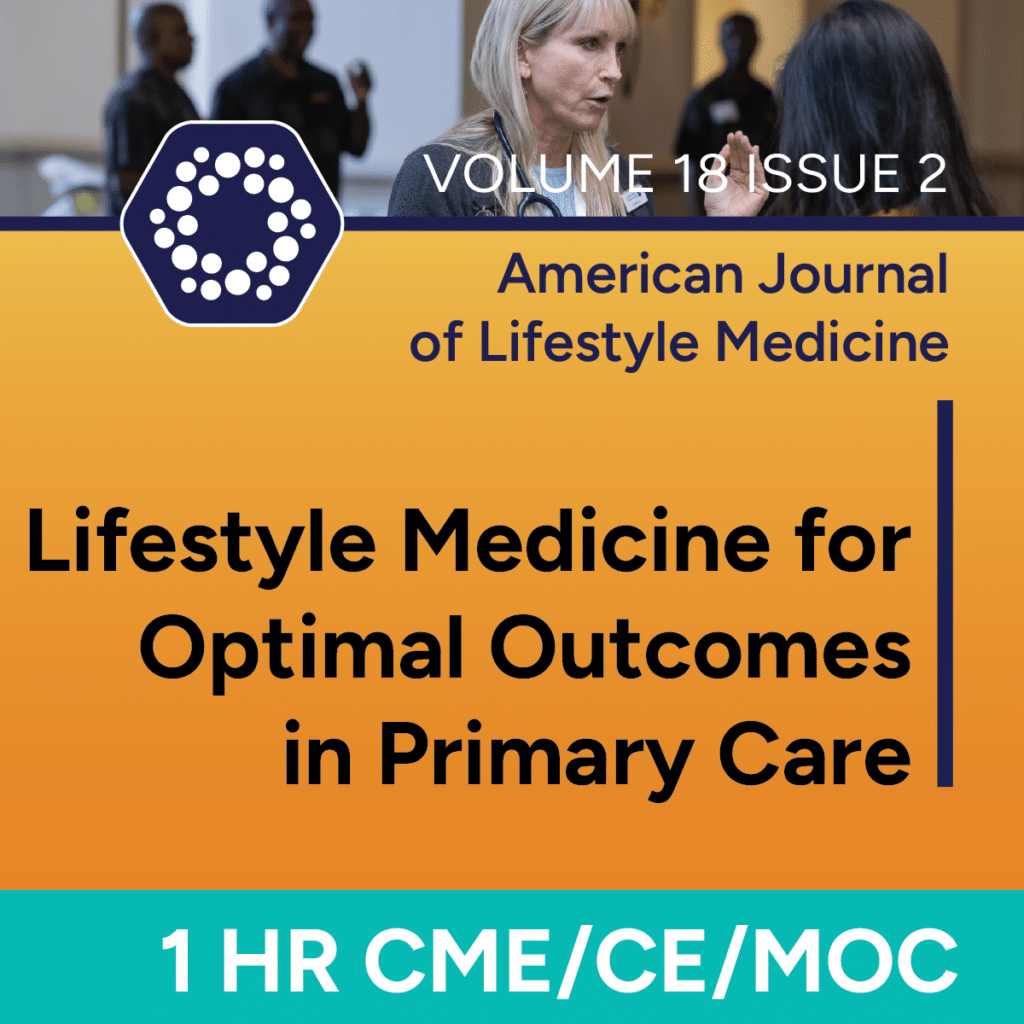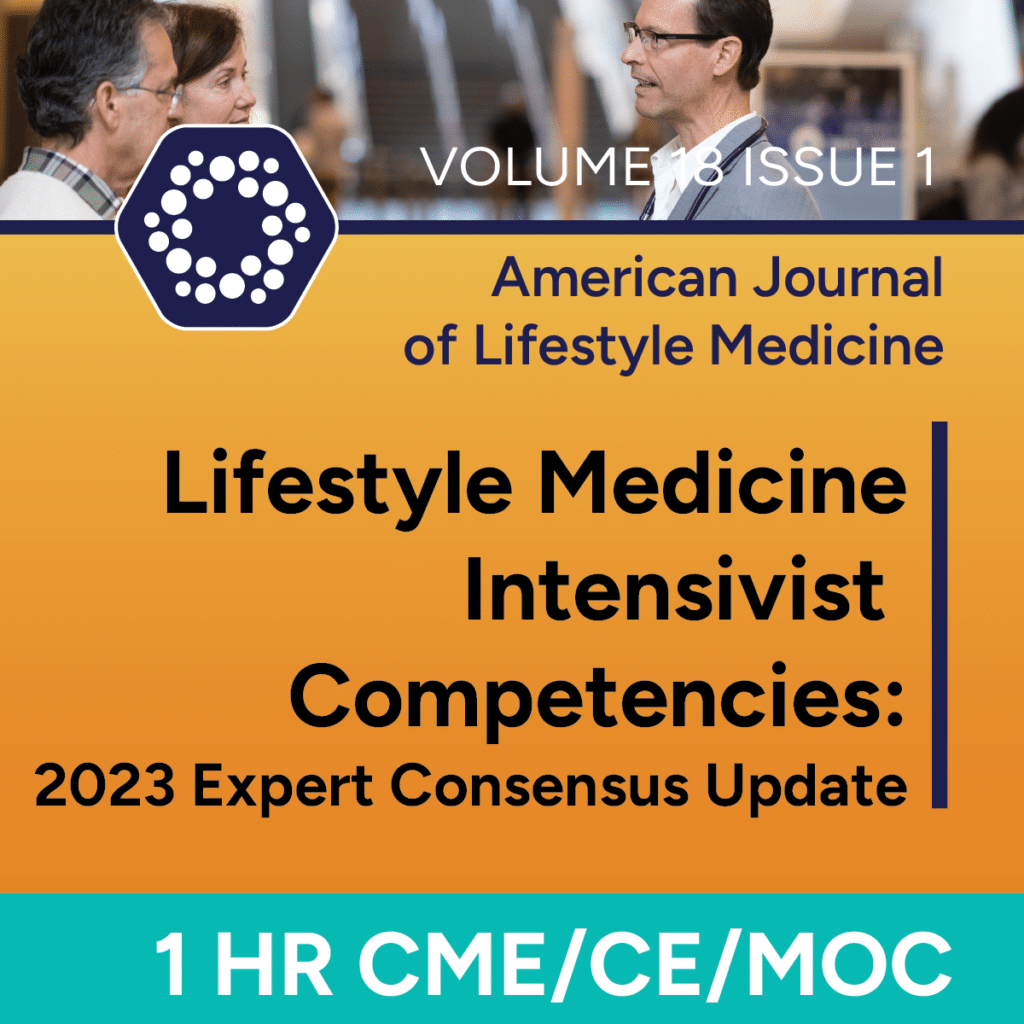American Journal of Lifestyle Medicine Articles
Member Benefit
ACLM and the American Journal of Lifestyle Medicine (AJLM) are pleased to offer CME/CE for six (6) to eight (8) AJLM issues per year starting in 2022. Articles will also offer ABLM MOC for those certified in lifestyle medicine. ACLM members can earn FREE CME/CE credit by reading the CME/CE article and successfully completing the online CME/CE activity. Available to non-members for $40 per article, this is a great way to access lifestyle medicine learning.
PLEASE NOTE: While these opportunities provide CME/CE and MOC to fulfill the 5 year maintenance of certification 30 hour MOC requirement for the American Board of Lifestyle Medicine, this offering is separate from and does not replace the required 3 annual articles and assessments on the LMMOC platform.

